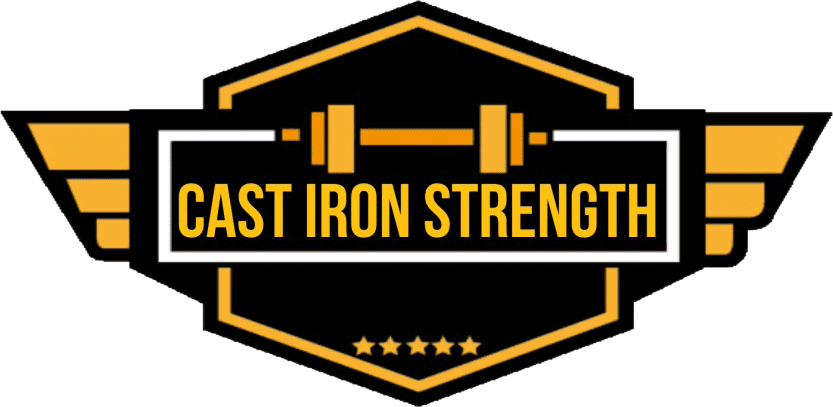
1 – Training to failure for strength
Training to failure leads to activation of the whole muscle due to accumulated fatigue and it will make you stronger, however it comes with a caveat the amount of time taken to recover from sets to failure is much greater. Due to the increased levels of fatigue lifter will habitually train with much reduced frequency (1-2x per week) which will over time reduce your overall training volume and greatly reduce your ability to gain strength.
2 – Worrying about scale weight especially in the lead up to a comp.
Your bodyweight is just a number, there are too many people who look at athletes online who do ridiculous weight cuts (Matt Kroc I’m looking at you) who popularized this kind of training, you must keep two things in mind to keep perspective on these feats
- These people are usually juiced out of their eyeballs
- They have a 24 hour weigh in.
If you are a tested athlete and have a 2 hour weight in you will have a much better experience if you leave the weight cutting to the elite looking for record performances who have coaches to guide them and lifters with a distinct disregard for their own longevity.

3 – Worrying about macros.
If you have two things in order
- Total calories sufficient for your goal (weight gain, loss or maintenance)
- Enough protein and carbohydrates available to allow recovery and not hamper your performance.
Then the content of your diet should sort itself out and you will definitely get what you want out of your training.
4 – Reading too much information from the internet (whoops!)
The internet is full of nonsense and the training space is no different if you want to find out the best ways to train for strength or endurance you might want to start reading a few referenced training manuals. If you want to read people either rehash the same old guff (ahem!) or just talking bollocks the internet is a great place to stay!

5 – Not doing mobility
This one is the cardinal sin of most of the lifting and athletic population make. Guess what if you move better and are more flexible and mobile, if you can get into good positions in sport and in the gym and as a result are going to be a better lifter or athlete. Stop making excuses and crack on.
6 – Worrying about assistance work.
In my experience unless you are doing something obtusely wrong with your lifting then assistance is mostly noise. You can do front squats to help you learn how to squat with a more upright trunk sure but that is a teaching tool, it is not going to develop stronger quads relative to your glutes. Lift specific assistance work is a bit of a red herring, sure it is good practice to have a rock solid foundation but please don’t over think it.

7 – Not doing direct lowerback work (outside of roundling like a rainbow in squats and deadlifts)
Your lower back is the conduit between your legs and the rest of you/the bar if it’s not strong then you’re in for a bad time. Your legs will always be stronger than your trunk (don’t believe me try and squat your 1RM leg press) to obviate for this you need to develop a strong enough back to allow you to transfer that strength into the bar and not into L5, lots of hyper extensions and abdominal work will help with your ability to not squat like a spaghettio.
8 – Not targeting your conditioning.
Stuff x time has to be the biggest load of nonsense when it comes to conditioning work, unless your looking to induce fatigue then you need to have an idea of the times and intensities you intend to work at and programme it like you would a lifting programme. Not many successful lifting coaches prescribe squats – 30 sec on 15 sec off x 8 with 120kg…. looks stupid doesn’t it.

9 – Conditioning the shit out of the Lactic system.
Your ability to cope with lactic acid is extremely task specific and also it has a very short shelf life of improvement as such you should spend the majority of your time developing aerobic capacity (through direct systems training) and movement efficiency (by mastering your sport or modality) these two things together will make you an extremely well conditioned athlete. Add in some sports specific lactic training and your good to go.
10 – Training hard all of the time.
Go hard or go home is the mantra of retards and those who want to go home in a wheel chair. Your training needs to be targeted and organised so there are periods of high highs and low lows. You can not pull on something forever without it breaking your muscles, tendons and bones are no different you need periods of recovery and planned deconditioning to allow you to push ever further from training cycle to training cycle.
11 – Taking supplements.
Pills and powders didn’t cure smallpox they aren’t going to make you lift more weights or run faster. The only supplement that is going to that either involves a ton of hard work or a ton of hard work and banned substances.

12 – Sequencing your training like a muppet.
Training is a yearly process so why are you setting out your training for the week? What is happening in 2 weeks? 4 weeks? 2 months? If you don’t know the answers to these questions maybe you should go and find out.
Marc

